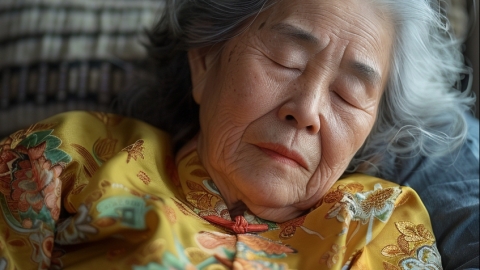How to Prevent and Treat Urinary Incontinence in Elderly Women
Generally, urinary incontinence in elderly women may be caused by excessive fluid intake, muscle weakening, decreased estrogen levels, urinary tract infections, or urethral stones. It is recommended to seek timely medical consultation to identify the underlying cause, followed by appropriate treatment under the guidance of a qualified physician, which may include general management, medication, or surgical intervention. A detailed explanation is as follows:

1. Excessive Fluid Intake
In daily life, excessive water consumption in elderly women may increase the filtration burden on the kidneys, resulting in increased urine production and potentially leading to urinary incontinence. It is recommended to control fluid intake and adjust water consumption according to individual body weight, living environment, and activity level, avoiding excessive hydration.
2. Muscle Weakening
In elderly individuals, pelvic floor muscles may weaken due to lack of exercise, making it difficult to effectively control urine outflow, particularly during coughing, sneezing, or laughing, which can lead to urinary incontinence. This may be accompanied by symptoms such as pelvic floor muscle weakness and a sensation of abdominal heaviness. Pelvic floor muscle exercises are recommended. Additionally, maintaining an appropriate level of physical activity and a healthy body weight can help reduce pressure on the pelvic floor muscles.
3. Decreased Estrogen Levels
In elderly women, declining ovarian function leads to reduced estrogen levels, causing atrophy of the urethral and bladder mucosa and a decrease in urethral pressure, which can result in urinary incontinence. This may also be accompanied by symptoms such as vaginal dryness and decreased libido. It is recommended to use estrogen medications under a physician's guidance, such as estradiol valerate tablets, conjugated estrogen cream, or diethylstilbestrol tablets, to improve urethral function by supplementing estrogen.
4. Urinary Tract Infection
Urinary tract infections refer to infections of the renal pelvis, ureters, bladder, and urethra caused by various pathogens, with the most common being infections caused by Gram-negative bacilli, gonococci, and chlamydia. These infections may irritate the bladder and urethra, potentially leading to urinary incontinence in elderly women. Symptoms may include urethral discharge, cloudy urine, and fever. Prompt medical attention is recommended, and medications such as norfloxacin capsules, amoxicillin capsules, or cefixime should be taken under a physician's guidance. Additionally, drinking plenty of water, maintaining good personal hygiene, and avoiding urine retention are advised.
5. Urethral Stones
Urethral stones are stones located within the urethra, most commonly originating from the upper urinary tract or bladder. If urethral stones are present in elderly women with urinary incontinence, they may obstruct the urethra and irritate the urethral mucosa, causing urinary incontinence. Symptoms may include difficulty urinating and hematuria (blood in the urine). Surgical intervention is recommended, such as extracorporeal shock wave lithotripsy or other surgical methods to remove the stones. Additionally, drinking plenty of water can help promote stone passage.
In daily life, it is recommended to maintain a cheerful mood, as a positive mental state helps regulate endocrine function and alleviate symptoms of urinary incontinence. Additionally, family members are encouraged to provide psychological support to help build confidence and actively participate in treatment.




